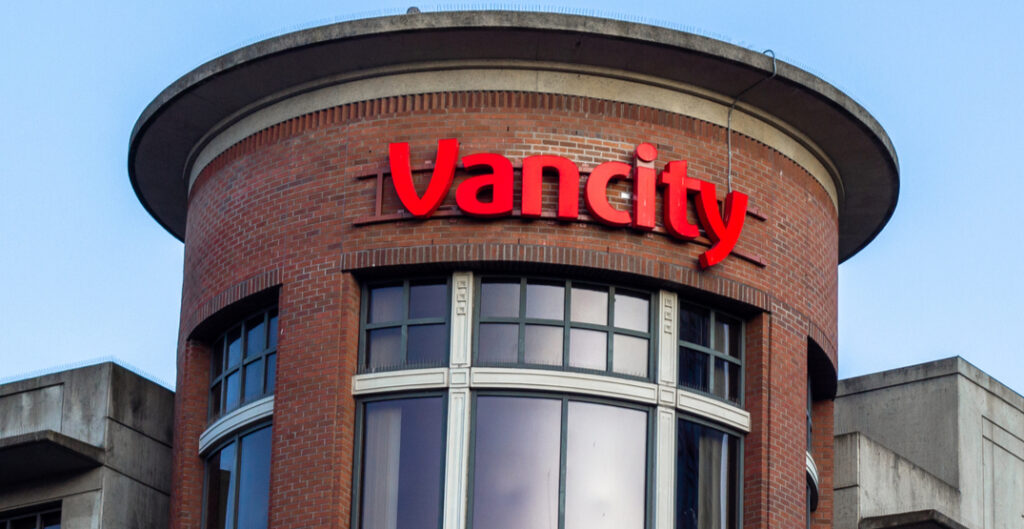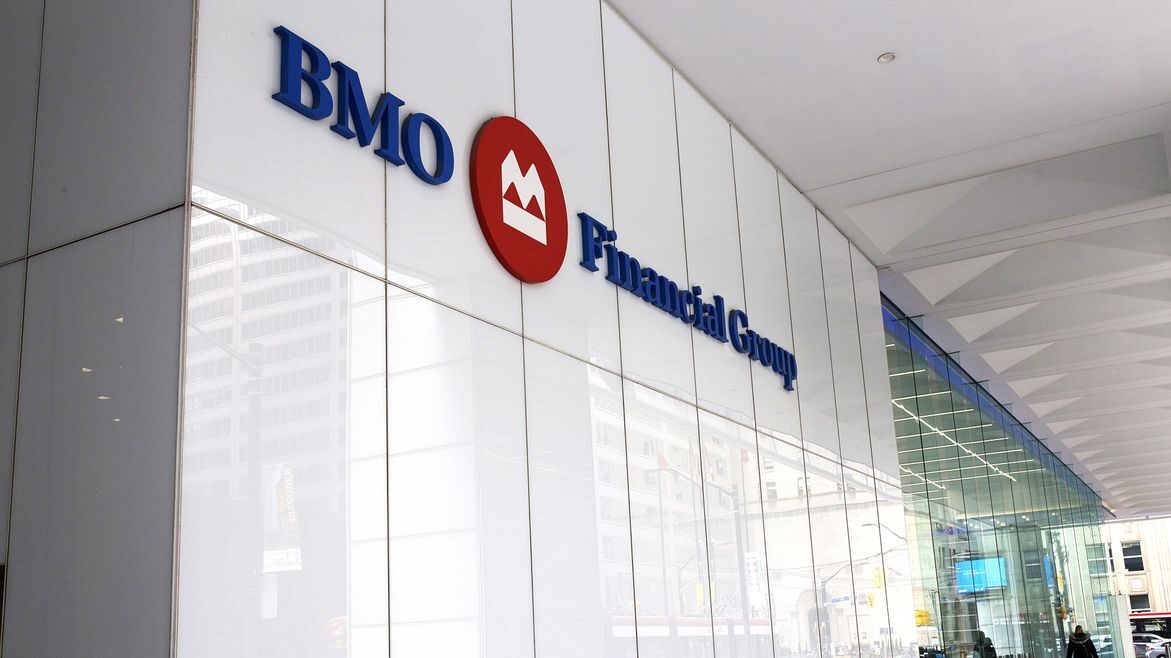One of the first things a new organization should do is setup an operating (chequing) bank account that is separate from the personal banking of the founders. There are strict requirements for financial management from funders and your tax authority (Canada Revenue Agency in Canada/Internal Revenue Service in the US). Many non-profits and most charities get audited as well. Trying to manage this through personal banking is not advised. Setting up a bank account for a registered organization is usually not too difficult or expensive, so it’s always recommended that not-for-profits, charities, and all business separate personal from business banking needs as early as possible.

There are a lot of products on the market and finding the right solution can be confusing. As we’ve been reviewing our internal banking needs, we wanted to share our assessment with you to help inform you of your options and important considerations if you’re new to financial services. In this review, we look at products from 5 leading national banks and 3 highly reputable credit unions that offer specialized solutions for non-profit and other community organizations. We look at 35 products from these 8 vendors. We limit our review to small business products that have a monthly fee less than $100/month since larger organizations may want to consider commercial banking.
At the very end, we’ll tell you which option we chose and why!
Product Categories
Even limiting our review to small business banking services from 8 Canadian institutions, there is diversity in the options. There are a variety of products available that are highly dependent on your needs. We’ve categorized our review into the following product groups:
- Non-profit/community accounts
- Digital first accounts
- High-volume accounts
- Accounts from a credit union
Evaluation Criteria
Monthly fees, minimum monthly balances to waive fees, pricing for digital vs. in-person vs. ATM services, cash deposit costs, included transactions, overdraft protection, Moneris integrations, and more. These factors all make it very confusing to figure out what should be important and how to evaluate your options. To simplify the financial analysis, we’re going to group our research around value into the following categories to evaluate the products:
- Digital banking services
- In-person/ATM banking services
- Deposits of cash and cheques

By focusing on the value of the products, we are certainly excluding some important considerations that many non-profit organizations may have. Notably, these include concerns around the ethics & economics of banks vs. credit unions, how other products and services might integrate (including other financial services as well as software), local access to ATMs and branches, customer service quality, user experience of their digital tools, and more. Just in the consideration of value alone, there is a lot to think about. We will touch on some of these a bit, but will focus on value as many of these other factors are even more objective.
Best non-profit or community focused account
Non-profit or community focused accounts are only available to non-profits, charities, unions, associations, and similar types of organizations for a lower price. Both banks and credit unions have community focused accounts, and they are a good value for most small non-profits.

Top choice: Vancity Community Service Package
Monthly fee: None
Why we love it: Vancity is a leading credit union based in British Columbia with a strong reputation of supporting non-profits, first nations communities, environmental causes, and more. Unlike major banks, they don’t have investments or loans out to fossil fuel companies. Not only are they a good citizen, but this community package is the best value for non-profits around. At no monthly fee for 40 transactions and lower than average per-transaction fees if you need more than that, the Vancity Community Service Package is a great place for small non-profits to start out.
Reasons to consider alternatives: If you’re not in Western Canada, in-person banking is not an option. The online user interface is one of the most outdated we’ve worked with, although it is functional.
Runner-up #1: CIBC Not-for-Profit Operating Account
Monthly fee: $4, waived with a $5,000 monthly balance
What we love about it: As a national bank with locations all across Canada, you’ll never be too far from a branch if you need in-person services, such as cash deposits. With 30 transactions, 30 deposit items, and $5,000 in monthly cash deposits included, this account is great value for most small non-profits, especially if you’re able to keep a monthly balance of $5,000 to waive your fee. CIBC mobile and online banking are intuitive and easy to use.
Reasons to consider alternatives: If you prefer to bank with a credit union with a better corporate responsibility record, a major bank is probably not the choice for you. There are better options if your financial transactions are managed digitally and you don’t require in-person services regularly.
Runner-up #2: Meridian Community/Not-for-Profit Account
Monthly fee: None
What we love about it: Meridian Credit Union is based in Ontario and a reputable community stakeholder and corporate citizen. With a minimum monthly balance of $1,000, all account debits (outflow of funds) are free. Other transactions are also reasonably priced compared to the competition, with most transactions costing $1 or less. The web and mobile app experience is also quite good compared to most credit unions.
Reasons to consider alternatives: Similar to Vancity being in Western Canada, Meridian only has branches in Ontario. While they are part of a large network of ATMs in Canada and the US offering free transactions, in-person services and cash deposits can be impractical if you’re outside of the province. Also, if you have a lot of credit transactions (in-flow of funds) and relatively few debits, this account might be expensive.
Other non-profit/community accounts to consider
- Alterna Community Plus Account: Another Ontario-based credit union, the plan doesn’t provide much detail on the website but is probably worth exploring.
- BMO Community Account: A $2.50 monthly fee waived with a $5,000 balance, 20 included transactions, 25 deposit items, and $2,500 in cash deposits, this is a good value from a reputable bank you can access anywhere across the country.
- TD Canada Trust Community Plan & Plan Plus: Offering 2 plans for early startups and scaling organizations with minimum balance fee waivers and good value. With a national presence and excellent online banking platform, this plan is worth a look.
- RBC Community Account or Scotiabank Community Account: While these are still good value compared to most products on the market and may suit some organizations, we think the other options are better value overall.
Best digital first accounts
Digital first accounts typically include unlimited electronic debit and credit transactions as well as some e-transfers for a very low monthly fee. If you need to do in-person banking regularly then these might not be right for you, but they present excellent value to organizations that typically manage all their financial activities online.

Top choice: BMO eBusiness Plan
Monthly fee: None
Why we love it: No monthly fee, unlimited digital transactions, $3,000 per day in e-transfers, and a partnership with Moneris. What’s not to love? In-person transaction and deposit fees are competitive with other products and providers. With a national network and a strong digital offering with no monthly fee, this is a great option for organizations that manage most of their activity online.
Reasons to consider alternatives: If you need access to regular in-person banking or cash deposits, this product might not be for you. That goes for any digital first plans though – this is a great product for many modern non-profits and social enterprises.
Runner-up #1: Meridian e-Prosper Account
Monthly fee: $9, waived with a $5,000 monthly balance
What we love about it: The only credit union with a digital first product on our list, this account is a good value for organizations that are able to keep a $5,000 monthly balance. Meridian’s digital solution is better than many credit unions, offering a good interface. In-person and other transactions are also cheaper than with the other digital products.
Reasons to consider alternatives: If you can’t keep a monthly balance of $5,000 in the account, the $9 monthly fee is too expensive for us to recommend this option otherwise. If you can stomach working with a bank versus a credit union, the BMO eBusiness Plan is a better digital solution.
Runner-up #2: RBC Digital Choice Business Account
Monthly fee: $5
What we love about it: As the original digital-first product on the market, the unlimited digital transactions and 10 outbound e-transfers included per month along with a Moneris partnership make this a competitive product. RBC offers a great web and mobile app experience, and you connect with them across the country. Other transactions are competitive with the market, so this plan is worth a look for digital first organizations.
Reasons to consider alternatives: BMO’s eBusiness plan has no monthly fee for a nearly identical product.
Best high-volume accounts
Non-profit and digital first accounts are a great option for many organizations, but some agencies need to process higher volumes of transactions or deposit cash and cheques regularly. For these environments, the previous options may become too expensive when add-on costs are considered. High-volume accounts are available to all businesses and a step between the accounts we’ve previously discussed and commercial banking that will cost more but provide a higher level of specialized support. For our purposes, we are considering high-volume accounts to include at least 50 transactions and 50 deposit items per month.

Top choice: CIBC Unlimited Business Operating Account
Monthly fee: $65, waived with a $45,000 monthly balance
Why we love it: With a relatively low monthly fee and a moderate minimum balance to waive it, this unlimited transaction account is better value than the products from any other major financial institution. It also includes $15,000 in monthly cash deposits (this is the highest of any of the 35+ products we reviewed) and 100 included deposit items. With access to locations and ATMs around the country and a solid digital solution, this is the best value in the high-volume category.
Reasons to consider alternatives: If you won’t keep the minimum monthly balance, this account is $780/year. While it’s excellent value for what you get, that is a lot of money for many non-profits.
Runner-up #1: Meridian Credit Union Prosper Account
Monthly fee: $25, waived with a $25,000 monthly balance
What we love about it: Based in Ontario with a national digital and ATM presence through a partner network, the Prosper account offers unlimited digital and self-serve transactions along with unlimited deposit items. While the cash deposit limits are low at $3,000 per month, many organizations manage very little cash anyways so this might not matter to you. Meridian Credit Union is known as a strong corporate citizen and contributes to the communities they serve in a much more direct way than major banks do. Meridian’s digital solutions are some of the best when compared to other credit unions.
Reasons to consider alternatives: If you need in-person services outside of Ontario or you manage a lot of cash deposits, this may not be the right option for you.
Runner-up #2: Scotiabank Select Account B
Monthly fee: $40, waived with a $35,000 monthly balance
What we love about it: Scotiabank offers flexibility to right-size your account through their “Select” accounts. These plans offer higher cash deposit amounts included than any other plans except for the CIBC Unlimited plan we just discussed. This plan includes $8,000 per month in cash deposits and the Select Account C includes $10,000. With 70 transactions and 60 deposit items included per month, this account should serve most organizations well.
Reasons to consider alternatives: There are a sweet spot of customers that will get great value from this product, but most organizations would be better served by the CIBC Unlimited Plan that we recommend as the winner of this group.
How to choose the right option in this category
Each of the 8 financial institutions we included in our review offered multiple products in this category to try and right-size your needs. There isn’t a one-size-fits-all option that works for everyone. We recommend having the banks and credit unions do the work for you to determine what the best option is for you. To do this, start with a little pre-work. For organizations that are managing this many transactions, we assume you have reasonable accounting records and gathering this information should be a routine exercise.
- Identify what minimum monthly balance you can maintain.
- For money you receive, estimate the # of digital payments (e.g. direct deposits, EFTs), # of e-transfers, # of cheques, value of cash deposits, and typical frequency of in-person services with a teller.
- For money you spend, estimate the # of cheques, # of digital payments (e.g. direct withdrawals, EFTs), # and value of e-transfer.
- Identify any unique needs for your organization, such as regularly requiring wire transfers or international banking needs to name a few examples.
- Consider how your needs might change in the next 6 months to a year and adjust your estimates up or down slightly.
- Connect with the sales teams at the financial institutions you are considering and have them price out their solutions for you.
Best Account from a Credit Union
Credit unions typically offer a more personal experience than a bank and can be a connection into your community. Most credit unions don’t invest or loan money to fossil fuel companies and tend to have more broad ethical considerations in their business practices. Many credit unions also have grant opportunities or flexible borrowing options for non-profits, making them a preferred choice for many non-profits and social enterprises.
Top choice (low-volume): Vancity Community Service Package
Monthly fee: None
Why we love it: For non-profits and community organizations based in BC, this product offers enough transactions for most smaller teams and low fees for additional transactions. Vancity has a great reputation of supporting the communities in which they operate, including through the Vancity Foundation grants and lending opportunities for non-profits.
Reasons to consider alternatives: If you’re not in Western Canada, in-person banking is not an option. High-volume organizations should look at the next option on our list.

Top choice (high-volume): Meridian Prosper Chequing Account
Monthly fee: $25, waived with a $25,000 monthly balance
What we love about it: Unlike Vancity that focuses on their core geography, Meridian is an Ontario-based credit union that aims to have a national presence. As a result, the digital products tend to be some of the best coming from a credit union, rivaling the quality user experience you get from the major banks. With unlimited self-serve transactions, unlimited deposits, and a relatively low monthly fee, this is a great option for organizations that need to process a lot of transactions.
Reasons to consider alternatives: If nearly all of your transactions are digital Meridian’s eProsper Account may be better value, but it’s hard to find any faults with this product.
Other credit union accounts to consider
- Alterna Community Plus Account: Another Ontario-based credit union, the plan doesn’t provide much detail on the website but is probably worth exploring.
- Alterna Small Business Accounts: With lower per transaction limits that are lower than the market, good financing opportunities, and a range of accounts to meet your volume needs, Alterna is another credit union to consider.
- Meridian Community/Non-profit: Our runner-up in the non-profit category, this is a great account for many organizations that qualify.
- Vancity Self-Serve and Full-Serve Accounts: Offering a variety of plans depending on your needs (in-person vs digital, volume), Vancity has a plan for everyone as long as they are based in their service area. These plans are competitively priced and per transaction fees are competitive.
What did we choose?

We find it helpful to share our final thought process, because this is probably a lot of information to think through. It definitely was for us when doing the evaluation for our needs. As a fully distributed team that processes less than 25 transactions per month that are all digital, we were focused on non-profit as well as digital first solutions in our evaluation. While we like the idea of working with credit unions rather than banks, we value efficiency and integration in our processes highly.
An aside about credit unions vs. major banks: We allude to some of the benefits of working with a credit union over a bank, mostly related to corporate social responsibility and community engagement. Major banks continue to lend to fossil-fuel and pipeline projects along with various other harmful industries. Credit unions typically have strong ties to the local and regional communities they serve, leading to a more personal experience. There are drawbacks to credit unions as well, with digital solutions and integrations often being inferior to the major banks.
Our opinion is that you should choose the product and provider that offers you the best experience for your needs without putting too much emphasis on the ethical implications of your decision. Your cause justifies having the best tools and resources available, with your protest having negligible impact while potentially causing you to pull resources from your mission to deal with administrative tasks. Don’t agree? Tell us in the comments!
OK…back to our choice. When founding the organization, the CIBC Not-for-Profit Operating Account was setup out of convenience rather than good procurement, but after all of this work we’ve decided that it remains a good option for us. As we start to evaluate our borrowing needs and begin to scale, we will be considering a switch to the Meridian e-Prosper Account.
Most of our transaction volume is managed through 3rd party platforms and processed in batches through our bank, such as payroll being 1 bank withdrawal per payroll run. Similar situations exist for accounts payable and donation management, so transaction volume is not a major factor. We need a high-quality digital product with service we can easily access remotely (by phone, online, mobile app) for our automated internal workflows and distributed team. Meridian offers competitive rates through their loans/lines-of-credit (a topic for a future blog post) and all else being equal, we would prefer to work with a corporate citizen like Meridian Credit Union.
Follow us on social media for future updates!
Purpose Forward is a Canadian non-profit with a mission of activating operational capacity across the social purpose sector. We provide ongoing support, consulting, and training in many operational disciplines, including finance, human resources, technology, grant management, and more. Learn more about our services at link below.
